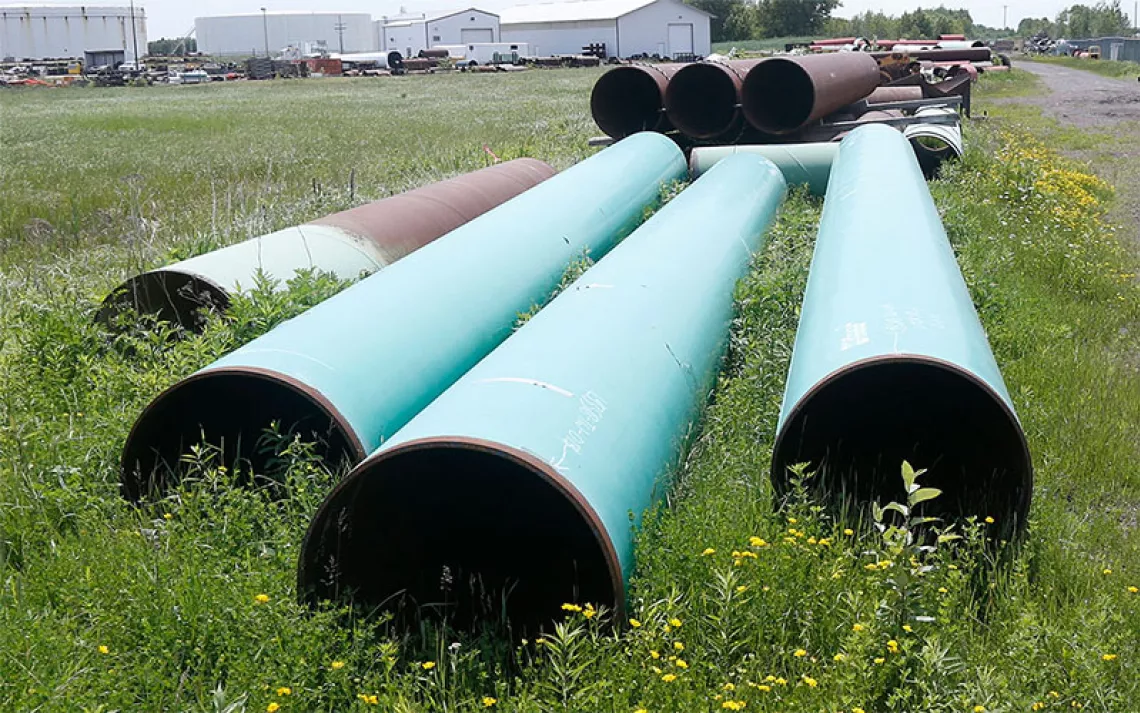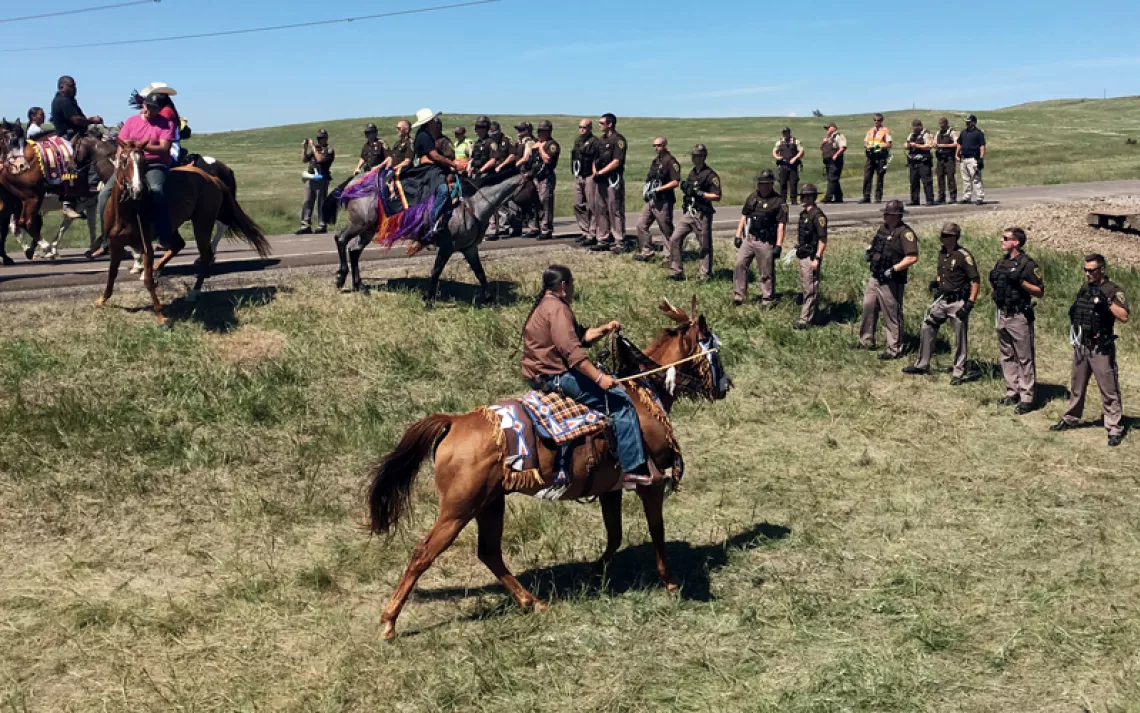Bayou Bridge Pipeline Permit Should Have Been Withheld, Judge Rules
Controversial pipeline faces another legal hurdle

Photo by VladKol/iStock
The oil companies behind the controversial Bayou Bridge Pipeline have hit a new legal obstacle in their efforts to construct a 162-mile-long pipeline along the Gulf Coast.
In a late April ruling—which wasn’t made public until May 7— Judge Alvin Turner found that the Louisiana Department of Natural Resources (DNR) had wrongly issued a permit that green-lighted the construction of the Bayou Bridge Pipeline through St. James Parish. The judge concluded that the Louisiana DNR “violated the Coastal Use Guidelines in granting a Coastal Use Permit for the proposed pipeline project,” and more importantly, did not consider the hazards the construction could bring to the people living in St. James. Judge Turner ordered Bayou Bridge Pipeline LLC to prepare an emergency response and evacuation plan before completing the project. The pipeline is a joint project between Phillips 66 and Energy Transfer Partners.
The Bayou Bridge Pipeline is part of a larger pipeline network that branches out from the Dakota Access Pipeline. Its path runs from the Texas-Louisiana border through the Atchafalaya Basin in southern Louisiana to the town of St. James, where many pipelines already congregate.
“St. James is really a ground zero for a bunch of pipelines already,” said Lisa Jordan, the director of the Tulane Environmental Law Clinic, which has been representing the plaintiffs (environmental groups and St. James residents) trying to stop the pipeline from reaching St. James. According to Jordan, there are a number of oil tanks, docks, and transportation stations already built in the town. Phillips 66 is proposing to build another pipeline in the area that will stretch from St. James to the refinery complexes closer to New Orleans. “The Bayou Bridge Pipeline goes right under Burton Lane, one of the main roads [in St. James], and connects to the New Star Terminal facility, which looms over the local community,” Jordan said.
With residents living in such close proximity to the pipeline, plans to deal with construction- and operation-related emergencies should have been in place before the authorities issued the permit. But the builders of the Bayou Bridge Pipeline have “no emergency response plan to potential risks of the pipeline when it begins operation,” the judge ruled, and the company hasn’t addressed how it would handle accidental leaks and the impact construction will have on the local community’s daily lives.
“Also, the pipeline will of course carry oil through St. James, and it’s still possible that the pipeline will carry tar sands as well, so it’s an even graver situation,” Jordan said.
While this is a small victory for the local residents, Bayou Bridge Pipeline LLC will likely file for an appeal. “The company will have to resolve the problems on remand unless they appeal and win, in which case they won’t have to do anything,” said Jordan of the worst-case scenario. If the appeal is rejected, “the issues they have to resolve are not easy to resolve,” said Jordan.
As the case against the pipeline bounces in and out of court, St. James residents have been feeling ignored by Energy Transfer Partners. The death this spring of a local environmental activist heightened concerns about the health consequences of living next to major oil, gas, and chemical plants. In March, St. James resident Keith Hunter, 60, died from respiratory failure. He had spent years fighting oil and energy companies from building their facilities in St. James. Jordan remembered something Hunter said often before his death about these construction companies: “He used to say, ‘They don’t care about moving us because they’re just waiting for us to die off,’ and then he died.” Local residents are now even more fearful for their health, as Hunter’s death is a reminder of the hazardous environment in which they live.
Protesters who are battling a different section of the same pipeline are anxiously waiting for a court decision on a lawsuit filed against Energy Transfer Partners. “It’s good to see that the unlawful way the permit was issued got exposed,” said Dean Wilson of the Atchafalaya Basinkeeper, one of the groups engaged in that suit. “But here in the [Atchafalaya] Basin, the fight is still going on.” Wilson went to court earlier this month after Energy Transfer Partners appealed an injunction granted by a federal judge in February. The ruling favored the environmental activists, who had shown how the pipeline’s construction would harm the biodiversity in the Atchafalaya Basin.
 The Magazine of The Sierra Club
The Magazine of The Sierra Club



